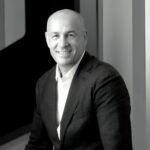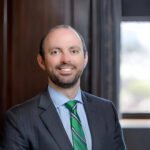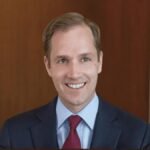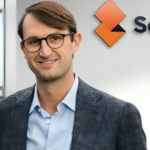Vlad Tenev is the co-founder and chief executive who turned a simple idea making markets accessible to everyday people into one of the most talked-about fintech platforms of the last decade. Under his leadership Robinhood has grown from a lean startup into a public company that reshaped retail trading, while also drawing scrutiny, congressional hearings and significant regulatory penalties along the way.
Early life and education
Vlad Tenev was born in Varna, Bulgaria, in 1987 and moved to the United States as a child. The son of parents who worked with international institutions, he showed early aptitude for math and science, attending Thomas Jefferson High School for Science and Technology before earning a degree in mathematics at Stanford University. He later began graduate work at UCLA but stepped away from academia to build trading infrastructure with his future co-founder, Baiju Bhatt. That mix of immigrant ambition and mathematical training became the foundation for a company centered on product simplicity and algorithmic efficiency.
From code to crowd investing
Tenev and Bhatt first built low-latency trading tools for institutional players, then pivoted to create Robinhood in 2013 with a promise commission-free trading for everyone. The app launched to the public in 2015 and rapidly attracted millions of users with an interface that made investing feel approachable. By 2018 Robinhood’s valuation surged into the billions, and the company ultimately went public in mid-2021 milestones that cemented Tenev’s reputation as a fintech founder who could scale product and user growth quickly.
A leadership crucible: the GameStop moment and accountability
No profile of Vlad Tenev is complete without the January 2021 trading frenzy that put Robinhood in the national spotlight. As meme-stock volatility spiked, Robinhood restricted trades in several names; Tenev defended those decisions before the House Financial Services Committee in February 2021, explaining the operational and clearingcapital constraints that drove the moves. The episode forced a re-examination of how retail platforms manage liquidity, risk and customer communication and left Tenev balancing a mission of democratization with the realities of running a regulated brokerage.
Regulatory fallout and remediation
The company’s rapid rise brought regulatory consequences. In 2021 FINRA levied a then-record penalty tied to supervisory and outage-related failures; Robinhood later settled additional probes and paid fines and restitution addressing long-standing compliance gaps. More recently, Robinhood agreed to further settlements with regulators to resolve probes into supervision and trade processing, an acknowledgment that the platform needed structural fixes as it scaled. Tenev has publicly framed these payments as part of a broader effort to improve controls, while the company invests in engineering and risk systems to prevent repeat failures.
Product bets, culture and the playbook today
As Robinhood’s CEO, Vlad Tenev has pushed the company beyond simple stock execution fractional shares, crypto trading, cash management, and a subscription product are all part of a broader strategy to become a consumer’s primary financial app. He’s also steered engineering investments toward reliability and automation, even advocating for advanced tooling in areas like AI and mathematical reasoning to speed development. Those bets reflect Tenev’s belief that user volume and tighter unit economics require both product breadth and operational rigor.
Reputation, resilience and the long view
Vlad Tenev’s tenure is a study in contrasts. On one hand, he embodies the fintech founder archetype technically gifted, product-driven, and unapologetically growth-focused. On the other, he has had to navigate tough public moments that tested the company’s values and compliance posture. Investors and users now judge Robinhood not just on its interface or low fees but on how well it protects and educates a new generation of investors. Tenev’s challenge is to keep the platform’s original ethos while proving it can meet the standards of a mature, regulated financial services firm.
What’s next for the Robinhood CEO and the platform
Looking ahead, Tenev appears focused on steady product innovation and geographic expansion, while tightening regulatory ties. He’s engaged with technical ventures that mirror his math background and has signaled interest in new financial products that could broaden Robinhood Markets’ revenue streams. Whether those moves will reconcile past controversies with the promise of broader financial inclusion will define his legacy a founder who opened markets to millions and now must show the same discipline in safeguarding them.
The Ongoing Journey of Robinhood Markets
Vlad Tenev’s story reflects both the promise and the pressures of modern fintech leadership. He built Robinhood from a bold idea into a platform that gave millions of people access to markets once reserved for a few. At the same time, his tenure as Robinhood CEO has been shaped by scrutiny, regulatory challenges, and the responsibility of protecting a new generation of investors. The next chapter will test whether he can balance innovation with accountability and whether Robinhood Markets can truly deliver on its mission of financial inclusion.
What do you think can Vlad Tenev guide Robinhood into a future where accessibility and trust finally go hand in hand?









